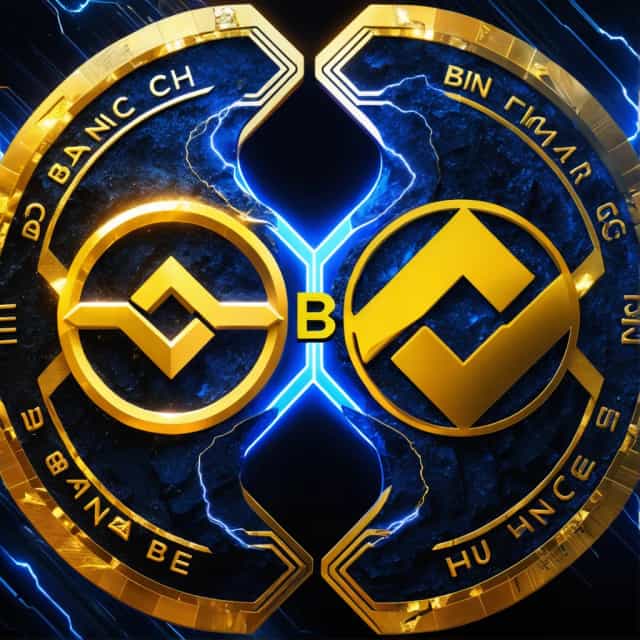![[National Assembly Audit 2025] Lee Eo-Kwon Backs Easing Banking-Commerce Separation… Is RWA Expansion on the Horizon?](/_next/image?url=https%3A%2F%2Fwww.blockmedia.co.kr%2Fwp-content%2Fuploads%2F2025%2F10%2F20251020-122735.png%3Fformat%3Dwebp%26width%3D600&w=1200&q=70)
출처: Block Media
South Korea Reviews Financial-Industrial Separation Policy: Implications for the Digital Assets Sector
South Korea is taking significant steps toward reshaping its financial and industrial regulatory framework, with a focus on fostering innovation in sectors closely tied to finance, particularly digital assets and tokenization of real-world assets (RWA). Chairman of South Korea’s Financial Services Commission (FSC), Lee Eok-won, disclosed on October 20 that the government is exploring measures to ease restrictions on the financial-industrial separation. This anticipated reform could encourage industrial capital participation in burgeoning financial sectors, potentially revolutionizing the tokenization of both tangible and intangible assets.
The Evolution of Financial-Industrial Separation in South Korea
The financial-industrial separation system has been a longstanding regulation in South Korea, instituted to mitigate the risks of industrial capital exerting undue dominance over the financial sector and to prevent disproportionate influence from financial capital within industrial operations. During a National Assembly audit led by the Political Affairs Committee, FSC Chairman Lee Eok-won elaborated on the origins of the framework, stating that it was designed to address the unique structural challenges of South Korea's economy at the time it was enacted.
Fast-forward to today, Chairman Lee highlighted the increasing calls for reform. He explained, "This framework was introduced many years ago, but we are witnessing a growing consensus for change due to the shifting landscape of financial and industrial innovation. We are currently holding internal discussions to determine the most effective approach for updating these regulations."
Rising Demand for Regulatory Modernization
The push for modernization was underscored during the National Assembly session by Democratic Party lawmaker Lee Kang-il. Criticizing the limitations imposed by the existing financial-industrial separation rules, Lee declared, "South Korea is falling behind in digital asset finance precisely because of these outdated regulations. It is imperative to reform the system to enhance industry-driven financial innovation and allow the financial sector to better support industrial advancement."
The lawmaker pointed out a key barrier: existing regulations prevent industrial capital from establishing private equity special-purpose companies (SPCs) for investment purposes. He argued that removing such restrictions would enable productive finance by unlocking opportunities for industrial capital to invest in promising fields like digital assets and RWA tokenization. These steps, Lee emphasized, are vital to positioning South Korea as a leader in digital finance innovation.
Proposed Adjustments to Strengthen Financial Linkages
In response to these pressing concerns, Chairman Lee detailed potential policy directions under review. He stated, "While the current framework under the Fair-Trade Act restricts industrial capital’s entry into the financial sector, we are considering regulatory adjustments to permit equity investments in industries with strong financial ties, such as fintech." Lee highlighted tokenization as one of the promising areas that could benefit significantly from these proposed changes, both for industrial players and the financial ecosystem.
Addressing implementation challenges, Lee added: "The most critical task is identifying practical approaches to ensure both regulatory effectiveness and economic growth." He assured the Political Affairs Committee that the FSC would work closely with relevant agencies like the Fair Trade Commission to construct feasible and impactful policy improvements.
Opportunities for South Korea’s Digital Assets Sector
The ramifications of these regulatory changes could be profound, particularly for South Korea’s nascent digital assets sector. If industrial capital is allowed to actively participate, the nation could unlock transformative opportunities in areas such as cryptocurrency finance, blockchain technology, and RWA tokenization. These advancements have the potential to propel South Korea to the forefront of global digital finance innovation, fostering interconnected growth across multiple industries.
Conclusion
South Korea’s consideration of easing financial-industrial separation marks a pivotal moment for the nation’s regulatory and economic landscape. By adapting to the complexities of modern finance and industry, the proposed reforms could deliver substantial growth and innovation, particularly in digital assets and emerging financial technologies. As the FSC collaborates with key agencies to develop practical solutions, these efforts signal a promising future for South Korea’s financial ecosystem, setting the stage for industrial capital's enhanced role in driving digital finance forward. Businesses, investors, and policymakers alike should closely monitor these developments, as they could redefine the country's position in the global economic arena.










